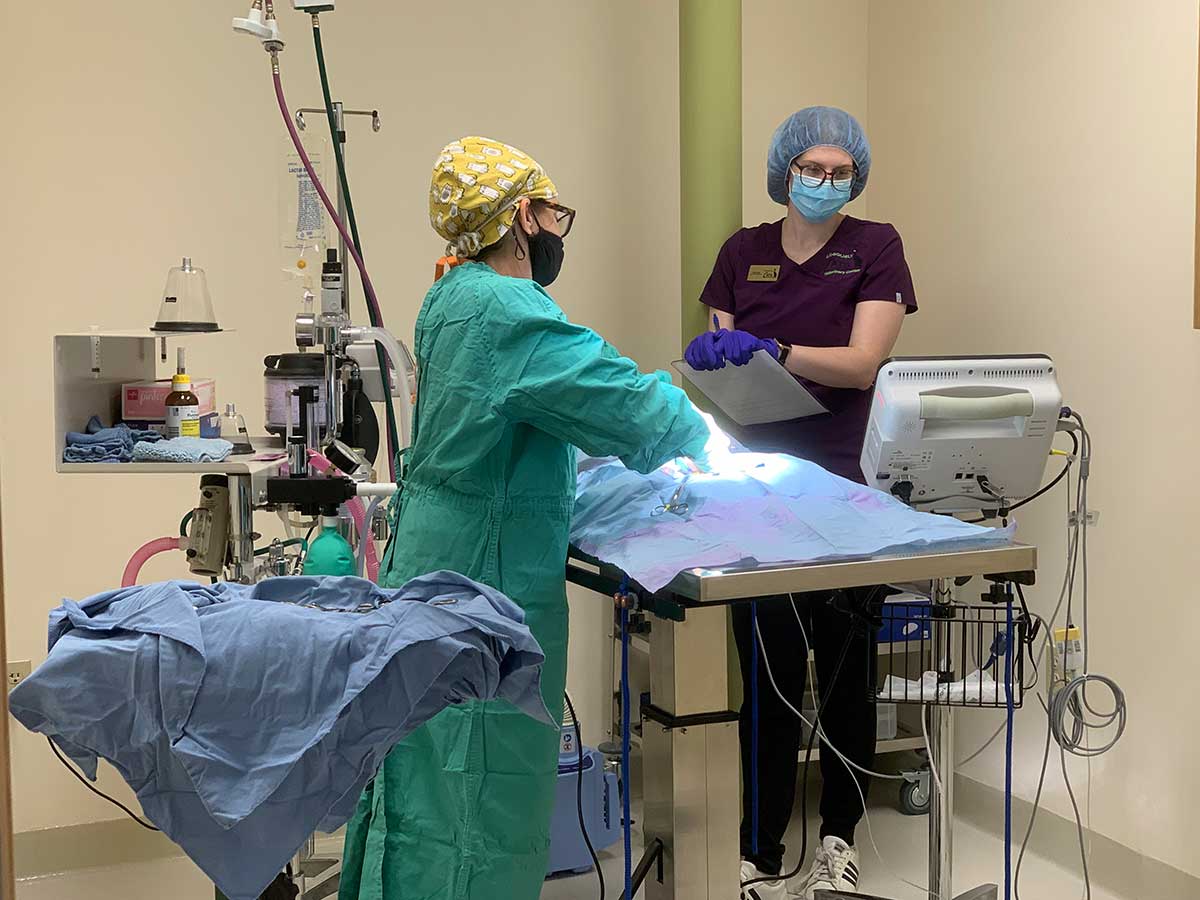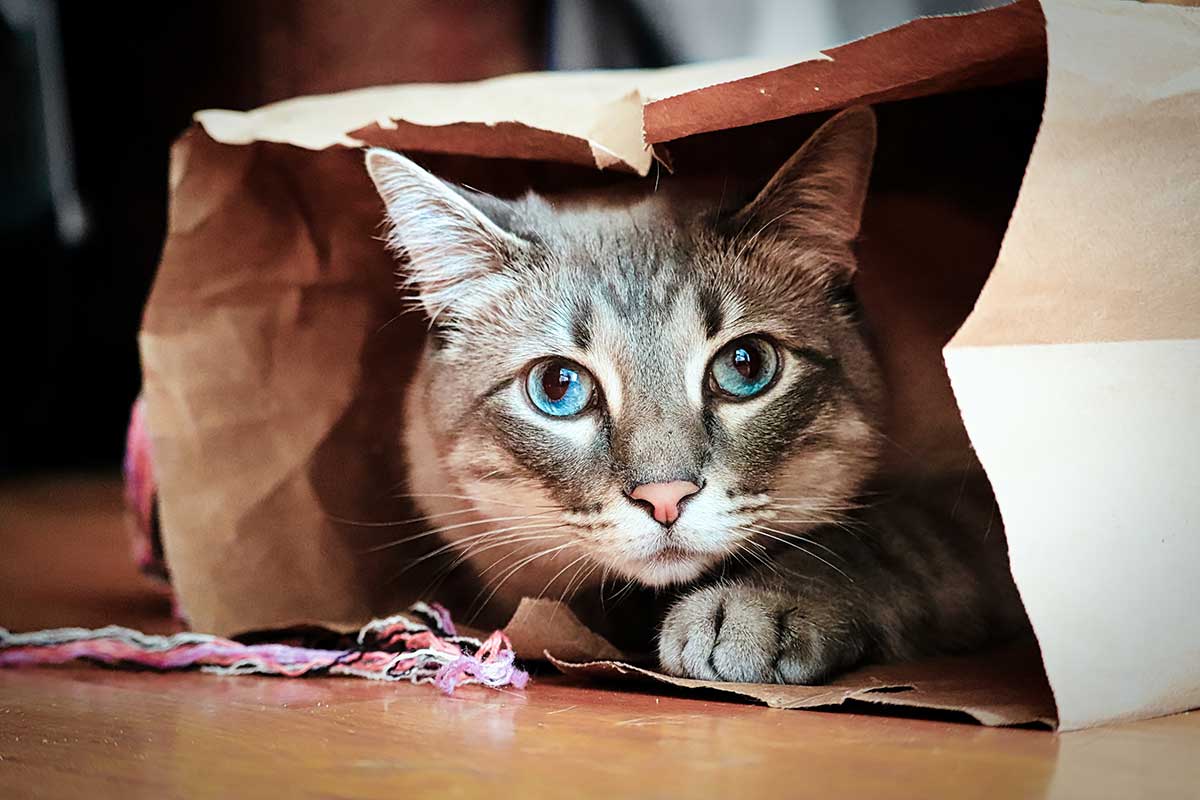Surgical Care for Your Feline Friend
Uniquely Cats Veterinary Center offers a wide range of surgical services, including specialty surgeries performed in our facility by board-certified surgical specialists.

UCVC cat veterinarians provide the following surgical services:
- Spays and neuters
- Biopsies
- Mass removals
- Wound debridement
- Laceration repair
- Exploratory surgery (GI foreign bodies, intestinal biopsies, etc)
- Bladder stone removal
- Amputation of irrevocably damaged or diseased tails
- And more!
Speciality Surgery
We offer a long list of specialty surgeries, performed by a board-certified surgeon who brings in his own team. Using this resource, we can provide access to many procedures that would otherwise require referral to a specialty hospital.
When Your Cat Needs Surgery
Regardless of the reason, it is always stressful when your cat needs surgery. Surgery is often a necessary choice for a patient, whether elective (spaying, neutering) or otherwise (intestinal foreign body removal, bladder stone removal, etc.). As a cat parent, you need to know that there is always some level of risk associated with surgery (anesthetic problems, surgical complications, recovery complications), and there is always discomfort associated with any surgical intervention.
At UCVC, we want to make the surgical experience as stress-free and painless as possible for you and your kitty. We employ a multi-step process to accomplish this:
- We identify and mitigate risk factors, as part of a pre-surgical evaluation.
- Next, we make the experience as low-stress as possible for you. This includes making sure you are fully informed about all your options before moving forward, and that all your questions are answered in advance.
- We want to make the surgical experience minimally stressful for your cat. This is accomplished with a peaceful, quiet environment, comfortable housing, premedication for anxiety when necessary, gentle handling, and anything else your cat may need.
- Our next goal is to minimize painful stimuli by using minimally invasive surgical techniques, and to manage pain effectively where it cannot be avoided.
- During recovery we have a dedicated team member stay with your kitty until he/she is fully awake.
- Finally, we want your kitty's recovery to go smoothly at home, and in the unlikely event that problems do arise, we will provide you with home care information, and make sure you know how to recognize them and what to do about them.
Preparation for Surgery
- Please do not feed your kitty after 8 p.m. the night before surgery, unless otherwise directed.
- It is okay for your cat to drink water right up until you leave home, unless otherwise directed.
- We want to be sure that all your questions about the procedure have been answered. If you have questions or concerns, please contact us.

Surgical and Dental Suites: Where Surgery Happens
Surgery at UCVC is performed in our sterile Surgical Suite under sterile conditions. Our veterinary surgeons will don caps and masks, scrub for surgery, and then put on gloves and gowns before entering the suite. The surgical instruments will have been thoroughly cleaned and sterilized prior to use. Sterile technique is utilized to maintain the sterile surgical field.
Some surgical procedures require cleanliness but not sterility. These include dental procedures, debridement of infected tissues, and other such procedures where contamination is inherently already present. These "clean" procedures are usually performed in our Dental Suite.
Both the Surgical and Dental Suites are thoroughly cleaned and decontaminated after every procedure.
Anesthesia
Anesthesia is a critical part of the surgery process. Surgery cannot be performed without it. Anesthesia comprises a significant part of the cost of any surgical procedure, and also is the source of most of the risk. At UCVC, as part of the preparation for surgery, your cat will have a pre-surgical visit scheduled, during which your veterinarian will perform a full anesthetic safety evaluation. Each surgical candidate is evaluated prior to anesthesia with a physical exam, and with diagnostic testing necessary to assess organ functions. This may include blood and/or urine testing, radiographs, or echocardiograms. Once your doctor understands your cat's individual problems and needs, we can design an optimally safe anesthetic protocol.
Anesthesia is NOT performed the same way in every hospital. At UCVC, we take every precaution to make each procedure as safe as possible for every patient.
In cases of patients with extraordinarily high anesthetic risk, a board-certified anesthesiologist can be brought in to manage anesthesia.
Pain Management
Pain management (analgesia) is an indispensable concern in any surgical procedure. Pain management is not only basic humane medical practice, but also necessary for optimal healing, since pain impedes healing. Cats can make pain management very challenging; they are extremely good at hiding pain. A good guideline to follow is this: “if this would make me hurt, it's probably making my cat hurt” — then treat accordingly. Different surgical procedures induce different types and levels of pain. Your veterinarian can help you understand how pain can be treated most effectively for your particular cat.
When managing postoperative pain in your cat, always remember that cats hide pain. Instead of whining or limping, they typically meat-loaf (a slang reference to the cat's shape when he is on the ground from sternum to belly, but not lying on his side) or otherwise restrict their own activity. It can be very difficult to judge whether your cat is in pain, the best approach is to follow label directions, or, if in doubt, assume that if you would be hurting, your cat probably is.
If your kitty is unexpectedly uncomfortable after surgery, please let us know immediately. Different patients respond differently to different drugs. If your kitty is not comfortable with the prescribed analgesic regimen, we can help!
Surgical Aftercare
All surgery patients are treated postoperatively with Class IV Laser therapy, to reduce inflammation and pain, and to aid in initial healing. During recovery all patients receive Pulsed Electromagnetic Field Therapy, which helps decrease both pain and inflammation.
When our surgical patient is discharged, a technician will provide you with written aftercare instructions, and review them with you. This may include incision care, administration of medications, and more. We offer a complimentary surgical recheck after every procedure, usually 10–14 days postoperatively for routine procedures. This may be necessary for suture removal, or to gauge how well a lesion has healed, or for other reasons. In some cases (depending on the patient and the procedure), it may be less stressful for the patient not to return for this recheck, and if there are no sutures to be removed or other such concerns, it may not be necessary. In this case, a technician will contact you within the recheck timeframe to ascertain that your cat is doing well, and to address any concerns you may have.
We Do Not Declaw
Uniquely Cat Veterinary Center does NOT offer elective declawing surgery (onychectomy). Experience and studies have shown that this procedure can result in many health problems throughout the life of the cat, including arthritis in the foot, hips, and back, chronic foot pain, and a lifelong increased sensitivity to pain in general. These risks increase with age. We have never offered elective declawing. As a Gold Certified Cat Friendly Practice with the Association of Feline Practitioners (AAFP), Uniquely Cats Veterinary Center has signed on to the recently initiated AAFP pledge to not perform elective onychectomy procedures.
Claw removals are sometimes rendered medically necessary after traumas, in cases of cancer, and for other reasons. UCVC surgeons can perform medically-indicated claw removal when necessary.
Call (303) 500-5158 to learn more about our surgical and anesthesia services.


